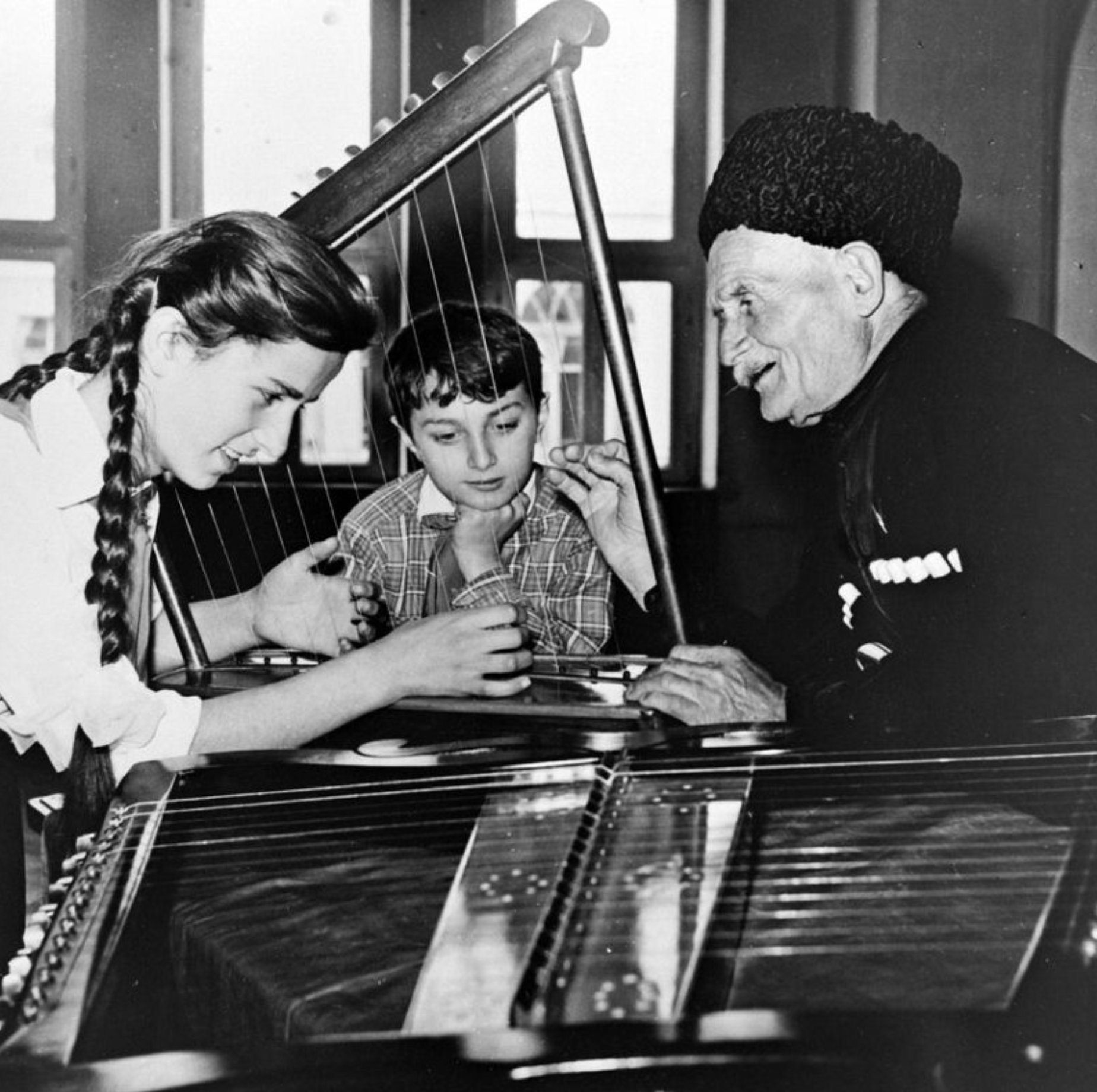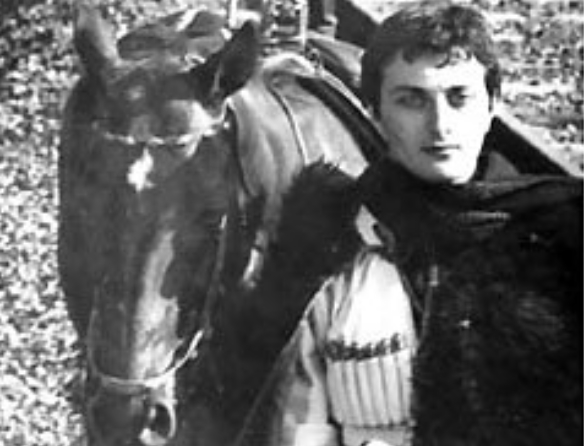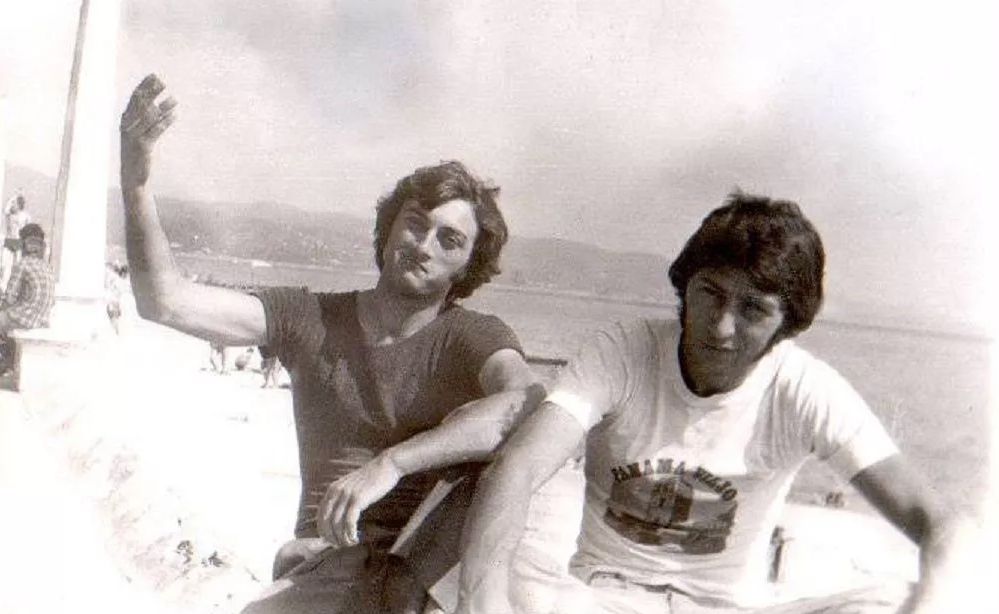Scientist and Valiant Warrior: The Legacy of Adgur Inal-Ipa

Adgur Inal-Ipa (30.11.1952 – 18.09.1993)
On 18 September 1993, during the Abkhazian army's offensive to liberate Sukhum, a tragic loss was suffered. Among the 23 fallen was Adgur Inal-Ipa, a figure of great promise and intellect, who was posthumously honoured with the Order of Leon.
Before becoming a name synonymous with valour, Adgur Inal-Ipa started his military odyssey in the nascent phase of the Abkhazian Patriotic War, serving under the esteemed Hero of Abkhazia, Mushni Khvartskia, at the Gumista front.
Adgur Inal-Ipa (30.11.1952 – 18.09.1993)
Born in Sukhum, Adgur Inal-Ipa hailed from a family of distinguished scientists. He completed his education in physics at the Tbilisi State University in 1976 and subsequently delved into research at the Sukhum Physico-Technical Institute. His studies centered on superfluidity and spectrometry technology. By the late 1980s, he joined the Moscow Institute of Space Research, contributing to significant missions like the Vega comet research and the Phobos Mars moon study.
Throughout the late 1980s and early 1990s, Adgur maintained his academic ties with Abkhazia, aiding in establishing essential scientific collaborations between the Abkhazian University and the Institute of Space Research. A tragic turn came with the Georgian-Abkhazian war, halting these promising ventures.
Adgur was not just a space scientist; he was also a pioneering figure in computer technology in Abkhazia. Among his achievements, he developed one of the first versions of the Abkhazian computer font.
His life was cut short in 1993 during the conflict, but his research, particularly in the realm of space studies, remains relevant today, with potential applications in future space missions.

Students Adgur Inal-Ipa and Inna Ketsba learning from folk storyteller Zosim Labakhua (1960s.)
A Scholar Amidst the Warriors
Stepping into the vanguard as a defender of his homeland, Adgur Inal-Ipa—descendant of the esteemed Abkhazian historian Shalva Inal-Ipa—demonstrated both strategic acumen and practical expertise. He was instrumental in designing fortified positions, carving anti-tank trenches in the Kutyshkha hill region, and leading reconnaissance missions. By October 1992, inspired and supported by Mushni Khvartskia, Adgur, collaborating with a select team, embarked on an ambitious project: to devise weaponry specifically aimed at neutralising enemy surface assets.
Adgur was a duality. "While his core resonated with the pacifist spirit, his Abkhaz roots ingrained in him an unwavering sense of national identity," reflects Akhra Bzhania, a close friend and fellow war veteran of Inal-Ipa.
Recognising his exceptional talent, on 28 November 1992, the Minister of Defense sanctioned the official formation of a specialised unit. Its mission? To engineer a mini-torpedo boat. Leading this intricate endeavour was none other than Adgur Inal-Ipa, with the distinction of being a candidate in technical science.

+ Shalva Inal-ipa (1916-1995)
+ "Silicon Man": in memory of Mushni Khvartskia
+ Remembering Hero of Abkhazia, Lieutenant General Givi Agrba
"The objective was grand: to craft a remotely controlled marine drone. Considering the technological challenges, it was an endeavour that even by today's standards isn’t elementary. But Adgur, alongside a dedicated team, relentlessly pursued this vision," Bzhania recalls fondly.
Leveraging Space Tech for Warfare: The Vision of Adgur Inal-Ipa
With a foot in the pioneering world of space research, Adgur Inal-Ipa masterfully leveraged his contacts at the Institute of Space Research. Through some astute manoeuvring, he managed to secure essential equipment and sophisticated electronics from Moscow, paving the way for the prototype of a revolutionary maritime weapon.
"The maiden trials in Gudauta were a resounding success. Yet, during a subsequent test amid a tempestuous storm, the prototype faltered. It tragically sank, missing the safety of the pier by mere metres. Despite this setback, the invaluable experience gleaned, combined with Adgur's unwavering leadership, propelled the team in Pitsunda. Stationed at the naval base "Kasatka", they developed and rigorously tested radio-controlled mini-torpedo boats. These advanced vessels boasted the capability of neutralising surface targets from an impressive distance of up to six kilometres," reads Adgur Inal-Ipa's commendation document.
An Indelible Legacy
Ahra Bzhania's association with Adgur Inal-Ipa began in the vibrant 80s, a relationship that deepened over time, eventually intertwining their families.
"As fate would have it, Adgur's sister, Arda, and my brother, Batal, exchanged vows, binding our families even closer. During the phase when Adgur was wrapping up his postgraduate endeavours at the Institute of Space Research in Moscow, our interactions were daily and eclectic. Be it music, global politics, the intricate game of chess, or the myriad wonders of life; our discussions were boundless," reminisces Bzhania.

Bzhania's recollections of Adgur Inal-Ipa are imbued with admiration and reverence.
"Few individuals imprint on memory as Adgur did. In my life, only names like Vladislav Ardzinba and Mushni Khvartskia come close. There's a certain intangibility about such individuals—maybe it's an innate moral compass or an unyielding sense of purpose. While most grapple with internal demons, some, like Adgur, seem to be untouched, embodying an intrinsic moral rectitude," Bzhania reflects poignantly.
Reaching for the Stars, Grounded on Earth: The Multifaceted Adgur Inal-Ipa
Adgur Inal-Ipa's scientific pursuits extended beyond our planet, playing a significant role in the ambitious launch of a satellite to Phobos, one of Mars’s moons.
"This achievement is awe-inspiring, even by modern-day benchmarks. It swells one's heart with pride to know that a scientist from Abkhazia was instrumental in this endeavour. Adgur's involvement in the intricate development of the probe, arguably the mission's most challenging component, is testament enough. The mission might have encountered setbacks when the rocket's navigation system faltered, but it underscored Adgur's unmatched expertise and calibre," articulated Bzhania.
To pigeonhole Adgur Inal-Ipa merely as a scientist would be an oversimplification. Bzhania is quick to dispel any notions of Adgur being just a "bookish" intellectual.
"Adgur's understanding and appreciation of the arts were profound. Literature, music, cinema — he revelled in them all. Our dialogues often veered towards contemporary versus classical music. Adgur wasn’t merely a passive connoisseur. He embodied the culture, his fingers weaving melodies on the piano keys with finesse," shared Bzhania.
Amidst a brief lull in the September hostilities, Adgur, entrusted with a vital reconnaissance task, was to make his way into Sukhum. His mission was to deliver essential data and software to the Abkhazian faction. However, as fate would have it, conflict erupted anew. Adgur, ever the patriot, aligned himself with the 2nd brigade's units. Their journey, fraught with combat, led them to the village of Yashtuha. It was here, on September 18, 1993, that Adgur Inal-Ipa made the ultimate sacrifice.
"Adgur grappled with an insatiable desire to contribute more. He yearned to be at the very heart of the action, believing that mere ship escorts and coastal patrols didn't suffice," Bzhania reflected, his voice heavy with emotion. "This deep-seated desire drove him to join the frontlines, a decision that, tragically, culminated in his untimely demise."
Renowned poet and academic Vladimir Zantaria extolled Adgur Inal-Ipa's impeccable moral fabric and his intellectual prowess. Zantaria posits that had Adgur been spared the horrors of war, much like Aleko Gvaramia's ascent to global mathematical fame, he would have been celebrated as a physicist par excellence on the world stage.